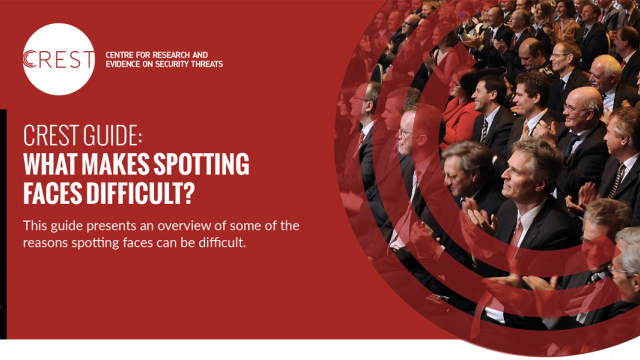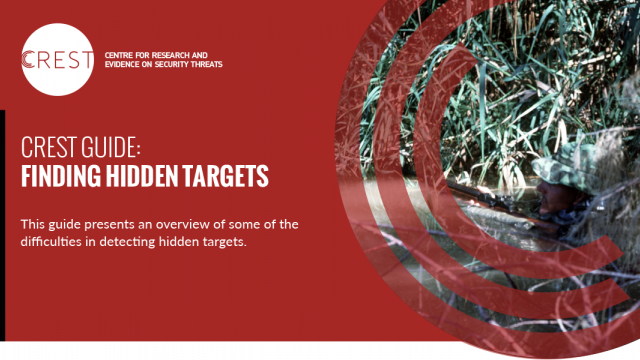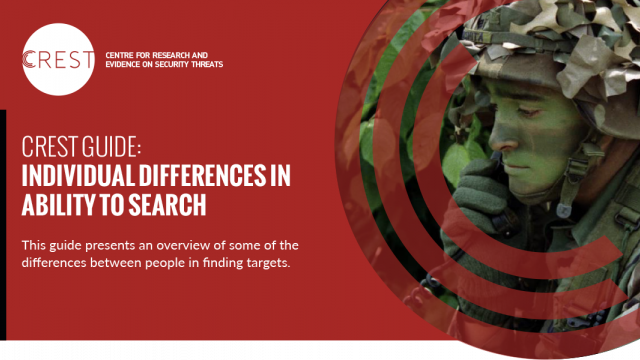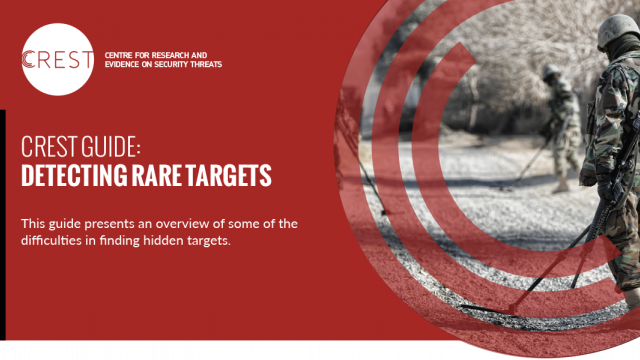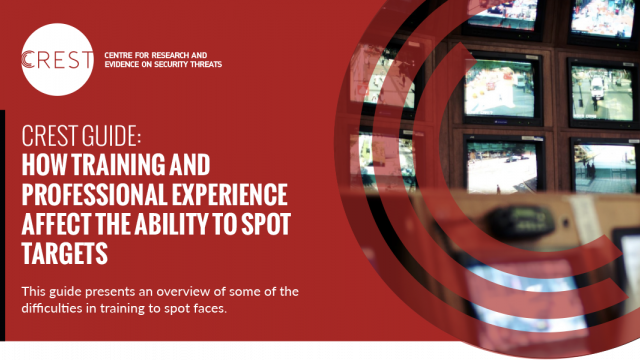Anne Hillstrom
CREST outputs
Projects
Articles
Academic Publications
Tracking the truth: The effect of face familiarity on eye fixations during deception
In forensic investigations, suspects sometimes conceal recognition of a familiar person to protect co-conspirators or hide knowledge of a victim. The current experiment sought to determine whether eye fixations could be used to identify memory of known persons when lying about recognition of faces. Participants’ eye movements were monitored whilst they lied and told the truth about recognition of faces that varied in familiarity (newly learned, famous celebrities, personally known). Memory detection by eye movements during recognition of personally familiar and famous celebrity faces was negligibly affected by lying, thereby demonstrating that detection of memory during lies is influenced by the prior learning of the face. By contrast, eye movements did not reveal lies robustly for newly learned faces. These findings support the use of eye movements as markers of memory during concealed recognition but also suggest caution when familiarity is only a consequence of one brief exposure.
(From the journal abstract)
Millen, A. E., Hope, L., Hillstrom, A. P., & Vrij, A. (2017). Tracking the truth: The effect of face familiarity on eye fixations during deception. Quarterly Journal of Experimental Psychology (2006), 70(5), 930–943.
https://doi.org/10.1080/17470218.2016.1172093
Projects
Articles
Academic Publications
Tracking the truth: The effect of face familiarity on eye fixations during deception
In forensic investigations, suspects sometimes conceal recognition of a familiar person to protect co-conspirators or hide knowledge of a victim. The current experiment sought to determine whether eye fixations could be used to identify memory of known persons when lying about recognition of faces. Participants’ eye movements were monitored whilst they lied and told the truth about recognition of faces that varied in familiarity (newly learned, famous celebrities, personally known). Memory detection by eye movements during recognition of personally familiar and famous celebrity faces was negligibly affected by lying, thereby demonstrating that detection of memory during lies is influenced by the prior learning of the face. By contrast, eye movements did not reveal lies robustly for newly learned faces. These findings support the use of eye movements as markers of memory during concealed recognition but also suggest caution when familiarity is only a consequence of one brief exposure.
(From the journal abstract)
Millen, A. E., Hope, L., Hillstrom, A. P., & Vrij, A. (2017). Tracking the truth: The effect of face familiarity on eye fixations during deception. Quarterly Journal of Experimental Psychology (2006), 70(5), 930–943.


